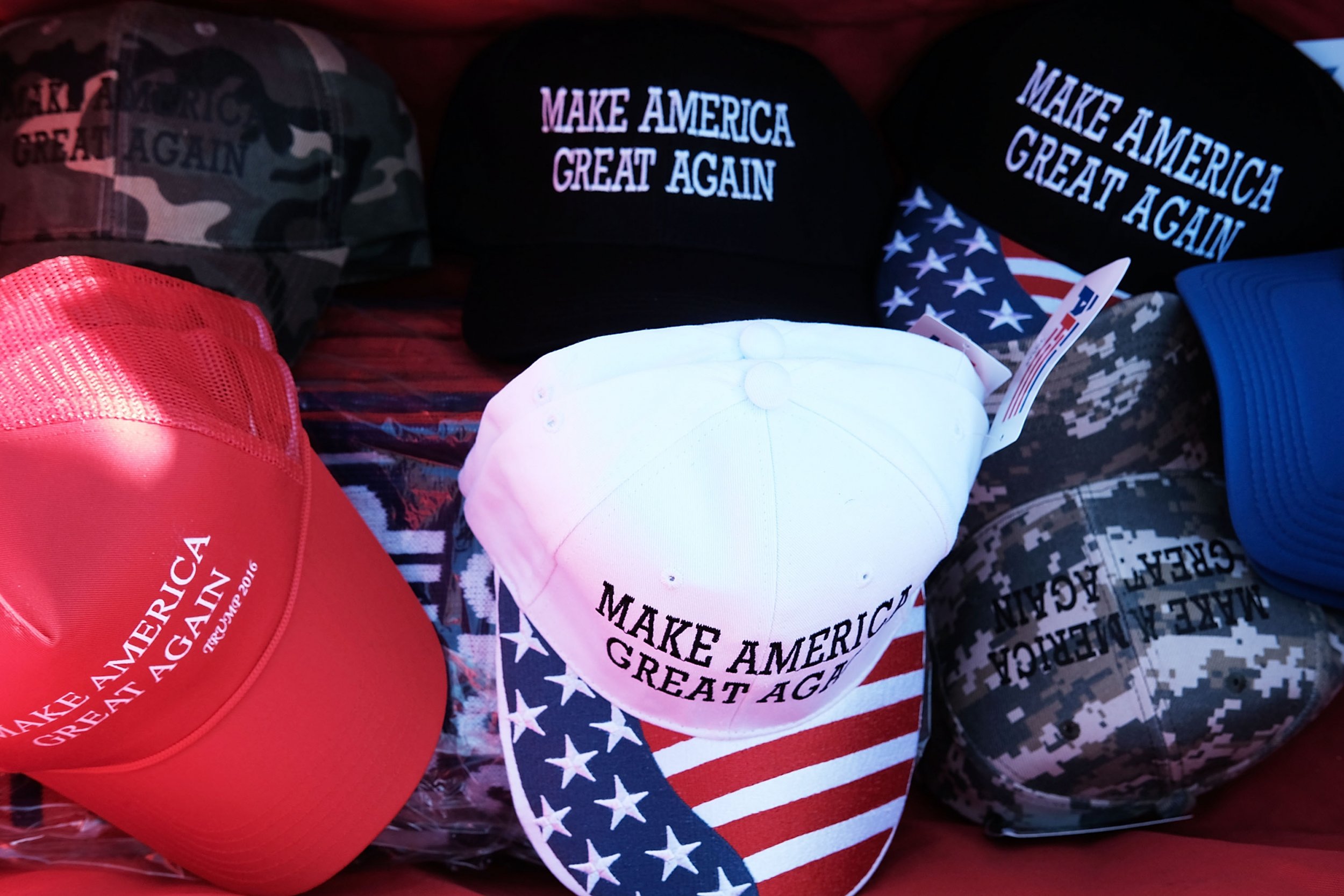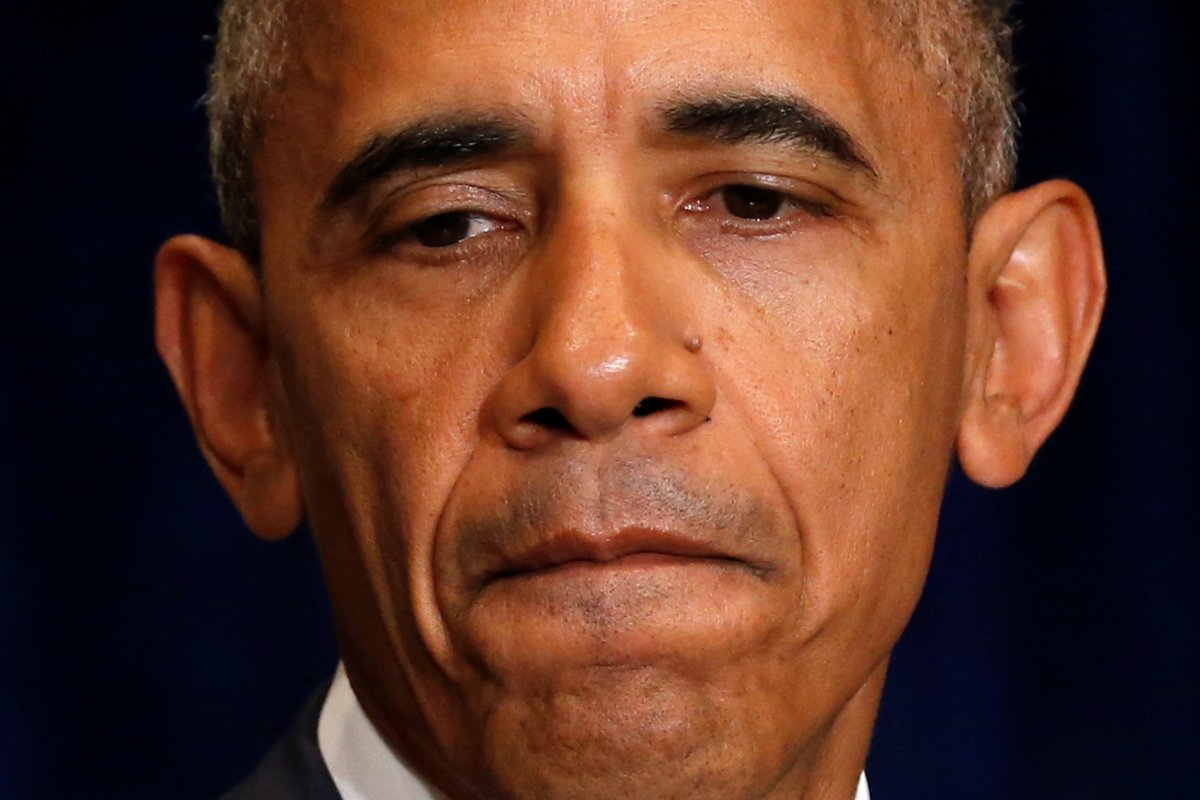
The election of Donald J. Trump as 45th president of the United States came as a shock to many—perhaps even to the billionaire himself. Across the U.S. and around the world, people asked the same question: What just happened?
Here was a man with no political nor military experience; who had angered just about every minority group ; whom a dozen women had accused of sexual assault —and yet millions of people had just elected him to the highest political office in the United States.
As exit polls showed, Trump didn't win among poor Americans, as was expected; the majority of voters (52 percent) with a total family income of less than $50,000 in 2015 actually voted for the Democratic nominee, Hillary Clinton.
Trump voters tended to be older (53 percent of people aged 45 and over voted for him), well-off and white. According to the exit polls, 58 percent of all white voters chose Trump at the voting booth, while just 21 percent of non-white voters cast their ballots for the Republican nominee.
The biggest issue for Trump voters—ahead of foreign policy, the economy or terrorism—was immigration, exit polls showed, with 84 percent of Trump voters saying that the government should deport undocumented migrants rather than give them the chance to apply for legal status.
Analysts say Trump's success among white voters is partly attributable to his tapping into concerns about immigration and a feeling among many voters that the U.S. should be a white, Christian country. "It's like everything he said hit the right nationalistic buttons," says Allyson Shortle, assistant professor of political science at the University of Oklahoma.
Like other experts who spoke to Newsweek , Shortle explained that the concept of nationalism is complex, and not easy to define. "It's important to note that racism and nationalism are these related but distinct components," she says. A person can strongly identify with their nation but not along ethnic lines.
"Some people think about it as an ideology, a movement, or an attitude—but some research, including my own, views nationalism as part of a person's social identity," writes Kathleen Powers, assistant professor in the department of international affairs at the University of Georgia, in an email to Newsweek . "When people identify with a nationality, they have an idea about what defines the prototypical or archetypal group member. In short, they carry a picture of what it means to be an American.
"That prototypical American," Powers adds, "might be defined in relatively inclusive terms, like a person who respects political institutions, or in more exclusive terms, like someone who is part of a Judeo-Christian religion, speaks English, or is a member of a certain racial group. Certainly, some people define the prototypical American as white, Christian, and/or born in the U.S."
And if that's your conception of what it is to be an American, Powers writes, then anyone who deviates from the norm is either not a true American, or is a poor version of one.
What figures prominently in how ordinary citizens define what it is to be an American, Shortle says, is the notion of the U.S. and its peoples as a Christian nation. (The Pilgrim Fathers, who founded what came to be the United States of America, were Christian dissenters fleeing religious persecution in Europe.)
Even today, religious nationalism remains strong among a significant proportion of U.S. citizens. On September 29, a poll of 4,000 Americans—which Shortle helped organize—found that 43 percent of respondents thought that the abundant natural resources in the U.S. were a sign that God wanted America to lead the rest of the world. Sixty percent of those surveyed believed that the U.S. holds a special place in God's plan. (Not all of the people polled were Christian or even religious).
According to Shortle, research shows that religious nationalism features particularly heavily among Trump's supporters. It is part of the reason, she says, that Trump's proposed ban on Muslims entering the U.S. played so well. It appealed to "this narrow vision of a Christian America," Shortle says.
But by targeting Muslims and undocumented migrants, Trump also played upon certain desires to view the U.S. as a "white" country that was under threat from non-white immigrants. Many of his supporters, Shortle says, interpreted Trump's campaign slogan—Make America Great Again—as "Make America White Again." (Shortle points out that given the U.S. was first home to Native Americans, and then was partly built by black slaves, the idea of returning to "whiteness" is a fallacy.)
Trump's comments that Mexico was sending "its most unwanted people into the U.S., in many cases, criminals, drug dealers, rapists," resonated with some of his supporters who feared that America was becoming overrun by immigrants. On November 1, the Crusader , the official newspaper of the Ku Klux Klan, threw its support behind Trump with a front page article headlined "Make America Great Again." The article read: "America was founded as a White Christian Republic. And as a White Christian Republic it became great."
"Throughout the U.S. people say they want to go back to the good old days, but that's very much a racialized idea," says Jacqueline Gehring, associate professor of political science at Allegheny College. "Trump's whole slogan, his whole campaign, threw back to a time when ethnic minorities weren't in powerful positions or weren't as successful as working- and middle-class whites. When things were great for some people, they weren't great for others."

Part of what led to Trump's rise, Gehring says, was a growing frustration among some people simply at having a black president. "There has been a backlash," she says. "Obama is seen as having emboldened black people, having led to the rise of groups like Black Lives Matter and I think it makes many white people feel uncomfortable."
Gehring rejects the idea that Black Lives Matter's existence is tied to a failure by Obama to address or improve race relations. "I think things have been bad for black people for a while in terms of police brutality," she says, noting that an absence of federal figures on police use of fatal force makes this difficult to quantify. "Having a black president has created energy in the black community. There's a sense that if we have a black president we can end the problem of police brutality too."
Sara Wallace Goodman, associate professor of political science at the University of California, Irvine, agrees that Obama's two-term presidency might have pushed voters toward Trump. "There is a feeling in the U.S. that there has been an excess of liberalism," she says. "People want to take back what was rightfully theirs and for some that includes taking back the color of the presidency."
The belief that the U.S. should be a white, Christian nation is not new. What is new was how Trump exploited that belief by repeatedly playing on people's prejudices toward Muslims and immigrants, portraying them as corrupting invaders.
In recent presidential elections, no candidate has so explicitly used nationalistic discourse as a method to gain votes. Neither has any president-elect received so many messages of support from Europe's far-right leaders, as Trump did. For these politicians, the president-elect is proof that an election can be won partly through stoking nationalistic fervor. Marine Le Pen, leader of France's far-right National Front, told the BBC on Sunday that Trump's win has improved her chances of being elected French president next year. Trump, she said, has "made possible what had previously been presented as impossible."
And with presidential elections due to take place in five European countries next year, other far-right leaders will be hoping for a surge in support—and to reap the benefits of the Trump effect.
Uncommon Knowledge
Newsweek is committed to challenging conventional wisdom and finding connections in the search for common ground.
Newsweek is committed to challenging conventional wisdom and finding connections in the search for common ground.
About the writer
Mirren is a reporter for Newsweek International, covering terrorism, security and crime. She is also the producer and co-host of ... Read more
To read how Newsweek uses AI as a newsroom tool, Click here.








